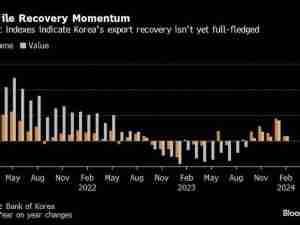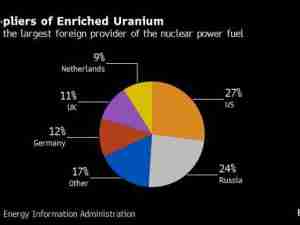The European Union is set to ban the purchase of Russian government bonds as part of proposed sanctions following Moscow’s recognition of separatist regions in eastern Ukraine, a move that’s in line with new U.S. measures.
The sanctions will prohibit the purchase or sale of “transferable securities and money-market instruments issued” by Russia, its government, the Russian central bank or entities acting on the latter’s behalf, according to draft documents seen by Bloomberg.
EU member states approved the package of sanctions on Tuesday and are due to publish the specifics Wednesday afternoon, according to diplomats who declined to be named discussing confidential preparations.
Both the EU and the U.S. have acknowledged that this round of sanctions would be limited in scope, and it’s not clear how much of an impact these measures will have on Russia, which is benefiting from high energy prices and high foreign reserves.
Russia is well positioned to get by without foreign funding, said Guido Chamorro, London-based co-head of emerging-market hard-currency debt at Pictet Asset Management. Twin surpluses, low foreign debt levels and high reserves mean the nation is relatively self sufficient, he said.
The country’s local-currency bonds have lost about 14% this year, the worst performer in emerging markets, according to Bloomberg indexes. The yield on Russia’s dollar bonds due 2047 rose a fifth day on Wednesday to 5.9%, set for the highest close in three years, as of 10:10 a.m. in London, according to prices compiled by Bloomberg.
Alongside U.S. sanctions on Russia’s sovereign debt, the measures would put global investors on notice that the securities could tumble further even after the steep declines they’ve experienced. Investor perceptions are that the U.S. sanctions are more of a warning shot than a shock-and-awe move.
“Sanctions were very well flagged, and I do not think they came as a surprise to investors,” Pavel Mamai, founding partner at London-based hedge fund Promeritum Investment Management LLP, told Bloomberg in emailed comments. “So everyone could position ahead of them, and we did as well.”
The planned EU ban on securities and money-market instruments applies to those issued after 14 days following the entry into force of the sanctions, according to the documents, which are still subject to change. The measures will also prohibit trading and investment advice with the government in Moscow and the central bank.
The provisions also block making “any new loans or credit” to the sanctioned entities, except to provide financing “for non-prohibited imports or exports of goods and non-financial services between the Union and any third state,” according to the documents.
Limited Scope
The packages of sanctions unveiled by U.S. President Joe Biden, as well as the EU and the U.K., over Russia’s actions regarding disputed Ukrainian territory hit markets with a whimper and were quickly criticized as limited in scope.
Instead of sweeping measures that crippled top Russian banks, cut its financial transactions off from the global economy or personally singled out Russian President Vladimir Putin, the U.S. and its allies settled on a modest “first tranche” of penalties.
The EU acknowledged the limited scope of its initial package. The bloc decided not to wield its entire “arsenal” of potential sanctions immediately, foreign policy chief Josep Borrell told reporters on Tuesday, because it expects more steps by Putin.







